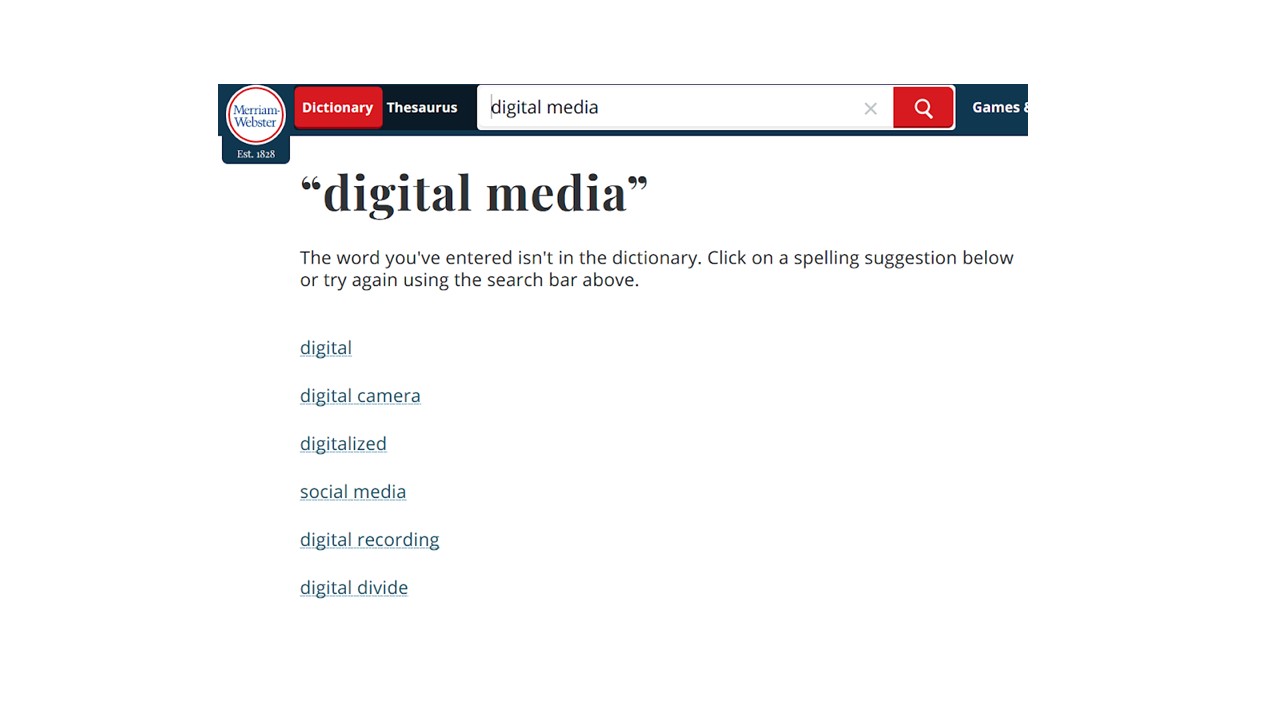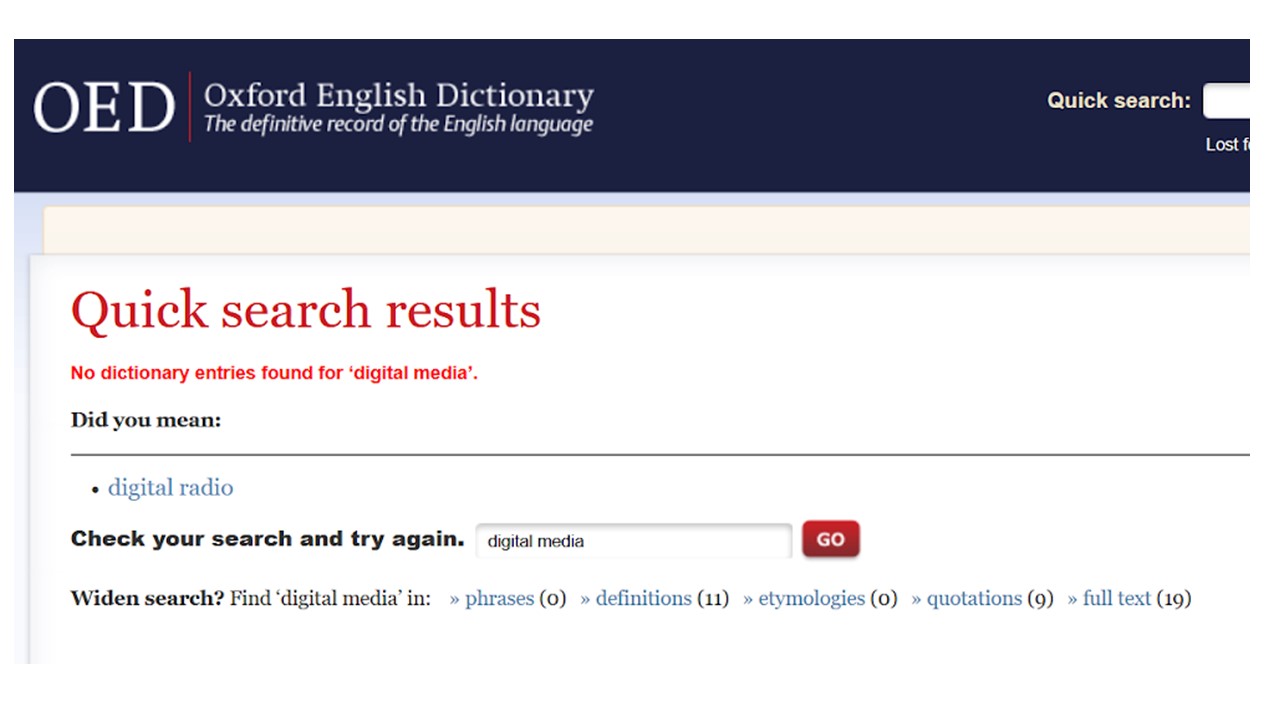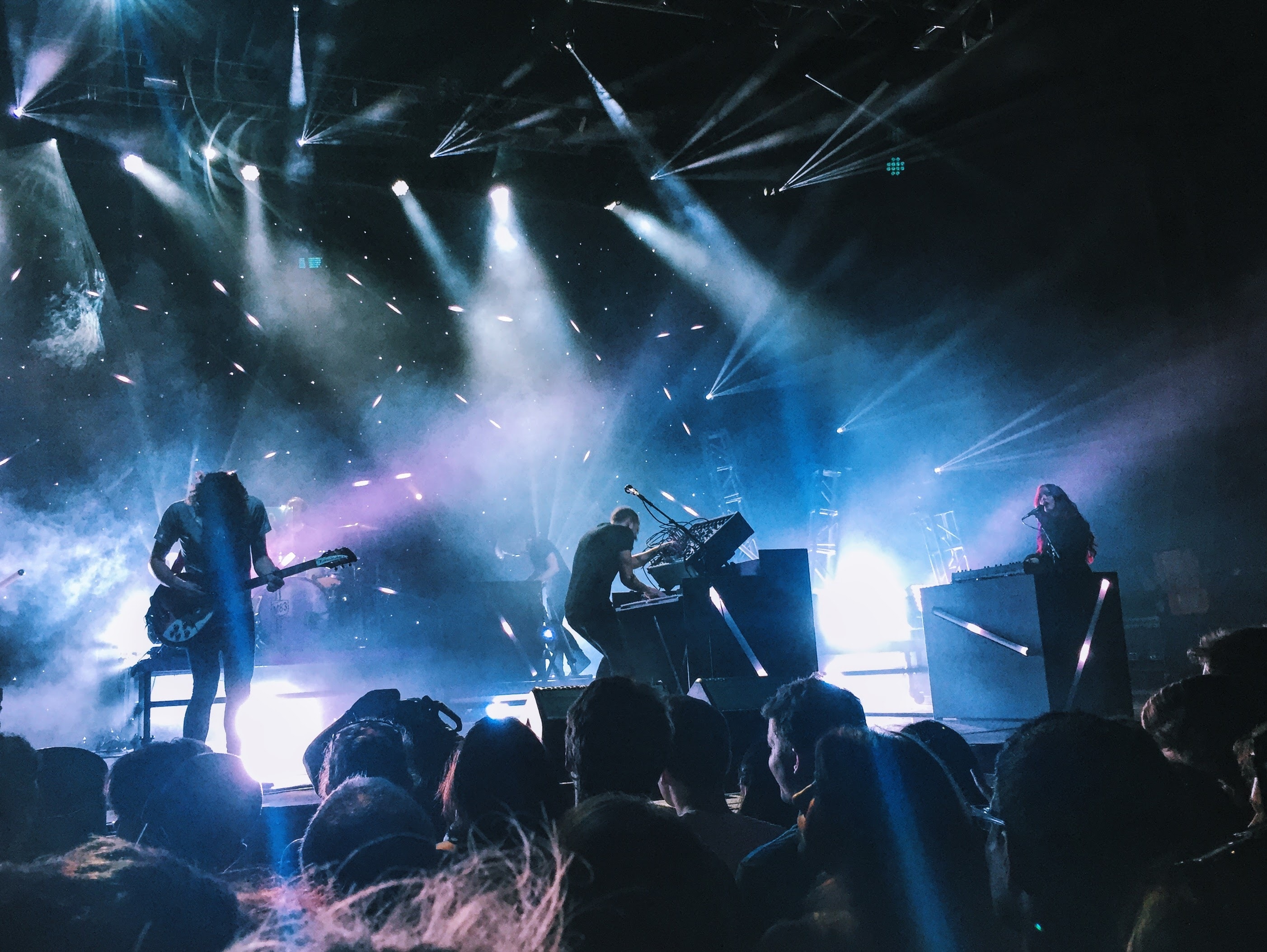
What’s this about?
I recently enrolled in the course ‘Digital media, culture and society’ and, since I am a very well prepared student who does research before enrolling in courses, I have absolutely no idea what ‘digital media’ truly means. Now before getting indignant, take into consideration that I like to dramatise situations. In other words: sure, I have an idea of what ‘digital media’ means, but there is a world of difference between having a vague understanding of a concept and knowing what you’re talking about. So, in order to spare myself (and maybe also you) the awkward situation of not being able to give a definition of ‘digital media’ even though you’re enrolled in a course with this term in the title, let’s try to organise our thoughts on the matter.
According to the dictionaries…
Normally, when one doesn’t know the definition of a word, one makes the herculean effort to open up a dictionary, so that is exactly what I did.


However, as you can see from the screenshots of my searches in the Oxford English Dictionary and the Merriam-Webster dictionary ‘digital media’ doesn’t yield any results. Maybe we’ll have more luck if we take the two terms separately. Now, according to the Merriam-Webster dictionary ‘digital’ means ‘’of, relating to, or utilising devices constructed or working by the methods or principles of electronics’’ or ‘’characterised by electronic and especially computerised technology’’. Looking up ‘media’ refers back to another noun: ‘mass media’, which is defined as ‘’a medium of communication (such as newspapers, radio, or television) that is designed to reach the mass of the people’’. We can thus safely conclude that ‘digital media’ aims to denote all types of media that has been digitised. In other words: all ways of communication that are characterised by computerised technology and an aim to reach a consequent number of people.
The obligatory devil’s advocate statement
I am sure that we can agree on where to put most of the media in terms of digitised or non-digitised. For example, your instagram page, a CD, a blog post, and a PDF version of a news article, are all part of the digital media family. Straight forward enough indeed. However, I like to make life more difficult than it needs to be. Therefore, imagine a live rock concert: music blaring out of the two metres tall speakers, electric guitar being played like there’s no tomorrow, the singer giving it their all in the microphone, and everything else that goes with it. Should that live concert be regarded as digital media? I mean, if you think about it, it does tick all the boxes. The concert is definitely aimed to reach a lot of people and the sound produced by the music is relayed to the speakers. This means that the sound waves have been ingested and transformed into numeric code, effectively making them digital. We could even go a step further, because in this case you could argue that there are performers (who are in no way digitised) but what about concerts that are given by an AI? Like for example the live concerts given by the japanese AI idol Hatsune Miku. In that particular case even the presence on stage is digitised…

Well yes, but actually no
I think that as is, we’re looking at the problem from the wrong angle. Yes, there is no debating that there are digital components to a concert, but is this the sole thing that determines if a media is digital or not? Let me try to put this in a different manner. A concert being played can be experienced in two ways: either by being physically present at said concert or by watching it through your tv or laptop at home. For the latter, you are experiencing the concert through a screen, all your senses are dependent on a digital contraption to participate in said concert. For the former, you are witnessing what happens on stage first hand, aka if the speakers would suddenly stop working, your experience wouldn’t be cut short (although it would be mightily frustrating). In other words, when you are at home watching a concert, digital technology is absolutely vital. However, it is not if you are physically present at the event. Therefore, I think the first proposition is an example of digital media while the second is not. By that same logic, if you are at the concert but are watching it through the lens of your phone’s camera or those giant screens they hang up so that everybody in the arena can see the stage, you are consuming digital media. This is because you live the reality of the concert through a digital proxy. However, if you were to tear your eyes from those screens, you would go back to normal, plain, non-digital media.
Digital media means…
Now what does this all mean for our definition? Well, it’s simple enough, we weren’t all that far off with our initial way of framing things, it just needed that last precision to make sense. Digital media refers to media that cannot be experienced without the viewer using digital contraptions. The term is thus more a comment on how the media is consumed rather than what it actually is.
References
https://www.merriam-webster.com/


Recent Comments